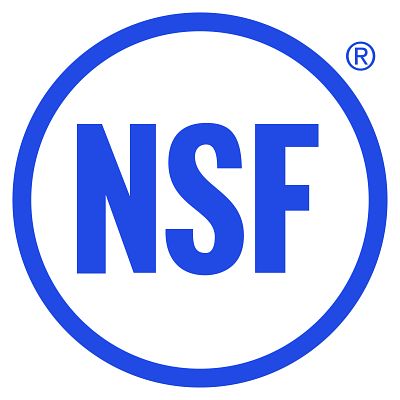With nearly 165 million BBQ's planned each year in the UK, the hygiene steaks are high!
It’s really important that we not only consider how we prepare and cook our food on the BBQ but also the cleanliness of it to help ensure our friends and family are protected, especially if the BBQ has been sat in the shed or garden for months on end! Think about those members of your family and friends that might be at high risk including the elderly, the very young, pregnant women and individuals with compromised immune systems. It’s all too easy to rush straight into cooking that first burger, but by following a few simple steps such as hand washing, cleaning BBQ cooking equipment, and cross-contamination controls, we can ensure that your BBQ is memorable for all the right reasons.
Alison Friel, Director of Consulting, Training and Technical Services UKI, NSF.
NSF's top ten tips to ensure you're BBQing safely
- Where possible, avoid actually touching raw meat and vegetables – put them on the BBQ with utensils. This reduces the risks of getting dangerous bacteria on your hands.
- Ensure you are using different utensils to put raw meat and vegetables on the BBQ and a different set to take the cooked foods off to avoid cross contamination. Alternatively, you could put the raw meat on the fire and then put the utensils in the BBQ heat immediately to disinfect them.
- Don’t put cooked meats onto a platter that was used to carry out raw meat to the BBQ.
- Place a bowl of hot soapy water and soap next to your BBQ to ensure you are able to wash your hands after handling raw meat and vegetables. Hand gel is also useful.
- Use a thermometer to check the temperature of your meat before consuming (75C) – make sure to insert the thermometer into the thickest part of the meat. Whilst whole steaks of beef and lamb may be served rare, never serve burgers, chicken, sausages or pork undercooked because bacteria could be present in the centre. Remember to disinfect the probe on the thermometer after use.
- Make life easier the next time and clean your BBQ grill after using it by scraping residues into the flames with a BBQ cleaning tool, and let the heat do the work.
- Studies have shown that the built-in side tables on barbecues are hot spots for bacteria and may be contaminated not just from raw meats but also by birds and pests so make sure you’re cleaning these surfaces with an antibacterial cleaner before cooking. And don’t forget the outdoor dining tables also need a clean before use.
- Whilst the BBQ gets hot enough to kill some bacteria, it won’t remove allergens, so if someone is allergic to a food group you may need to cook their food first on a cleaned grill or even in the kitchen, separately to be safe.
- If using marinades, make two batches – one to marinate the raw meat and one to use with cooked meat.
- Minimise the time you leave food out of refrigeration to around 1-2 hours max– the hotter the day, the faster the bacteria can grow. You could have an ice box handy to keep foods in next to the BBQ if you have a lot of food to cook, but don’t mix up raw and ready-to-eat foods (such as salads).

